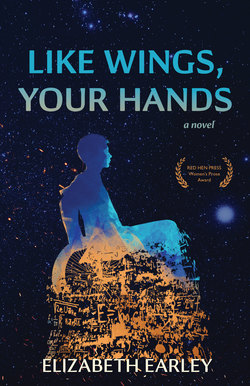Читать книгу Like Wings, Your Hands - Elizabeth Earley - Страница 17
На сайте Литреса книга снята с продажи.
11. January 5, 2015: Cambridge, MA
ОглавлениеOver the American commercial holidays, which Kali decided not to celebrate so formally now that Zach was gone, she actually missed going to her shrink. She was starting to understand why people paid so much money to have someone listen for an hour each week to their secrets and stories about their troubled lives. It was nice to have an objective stranger there to witness it, one with whom no reciprocation was required. On her first visit back, after exchanging pleasantries about the American commercial holidays, the shrink asked Kali about the time of Marko’s birth.
“Tell me about what happened after Marko was born.”
After Marko was born, Kali lived in the neonatal intensive care unit. The NICU. She was the only mother who wouldn’t leave. They gave her a nametag to wear around her neck: Kali, Marko’s mother. All the parents wore nametags like this, as if they were at a party. And like any good party, there was also alcohol. Kali became used to smelling alcohol on the breath of the other parents. She knew it as the smell of other people’s grief.
Kali became synesthetic some nights, intoxicated by sleeplessness. She could have sworn that she heard the pink lungs praying. The pulpy interiors, shiny under plastic wrap, hummed little lullabies. The sounds of the ventilators and respirators and various monitors were slimy against her skin—a very specific patch of skin on her middle back. She began to scratch it regularly to relieve the sensation of slime.
“You have a chronic itch there, on your back. You scratch at it all the time.” It was one of the NICU nurses.
Kali hadn’t heard her coming. She told her it wasn’t really an itch. She was a night shift nurse; Kali had seen her before and never spoken to her. Her eyes were kind. Somehow, she understood what Kali meant. She said, “Oh, I know. It’s an irritation almost, down beneath the skin. Right? Like on your spine?”
Kali remembered saying something pathetic like, “I don’t have a backbone. I feel so weak all the time, so crumpled.” The nurse spent some time reassuring her, which Kali hated and loved at the same time. She tended to do that, fish for reassurance or compliments, and then feel like she was going to throw up when she got them because of how contrived they were. How ingenuine. So the nurse told Kali how strong she was for being able to be there with Marko and blah blah blah. But then, Kali recalled, she said something interesting. The nurse wondered why people associate strength with the backbone in the first place. And, she had gone on, why is love associated with the heart? She said hearts are the strongest, most active organs in the body. Backbones hold everything up with flexibility and buoyancy, like love. So it should be the other way around!
Backbone = Love
Heart = Strength
The nurse talked to Kali about her chronic itch. She told Kali about a woman who had a chronic itch on her head and how, in her sleep, she would scratch and scratch it. The woman could control her scratching during the day while she was awake. But at night when she slept, she scratched the side of her head in her sleep. Every morning, she woke up with blood on her pillow and a fresh wound on her head. She went in for tests. Everything was normal; only there was this circle on her scalp where skin was replaced by scab.
So the lady tried everything from bandaging her head to wearing hats to bed, but she always found a way to get at it in her sleep. One morning, she woke up and found a greenish fluid on her pillow. She pressed some gauze to her head and went to the doctor. The doctor called an ambulance—it turned out she’d scratched clear through her skull into her brain and the greenish stuff was brain fluid.
Kali didn’t believe it. Nobody could scratch a hole through bone. But then the nurse told her how it happened. The woman had been scratching the spot so long, re-opening the wound so often that bacteria had surely gotten in there. This could have led to an infection that softened the skull, allowing her to gradually scratch through.
Kali thought about this: Brains and bodies work together, inseparably. The brain is not an autonomous organ. The body is actually as much a part of the brain as the fingers are the hand.
Likewise, the itch is inseparable from the scratch. The itch-scratch reflex activates higher levels of your brain than the spinal-cord-level reflex that makes you pull your hand away from a flame. And no doctor or scientist has been able to figure it out. There’s no specific nerve fiber responsible. The nurse thought it was because the brain and the body are one organism. A distress signal from the brain produces a deep itch in the body.
Which means the body produces thoughts. Different parts think different thoughts.
Kali had looked at Marko: his chest tube, his urinary catheter, his pulse oximeter, his nasal cannula. Every part of his body was cut into—a tiny bundle of violated skin. The thoughts his body made would be too much for a baby. Too much for his mother. As though reading Kali’s mind, the nurse said: “He’s on enough morphine to not feel any of that. Enough not to think.”
